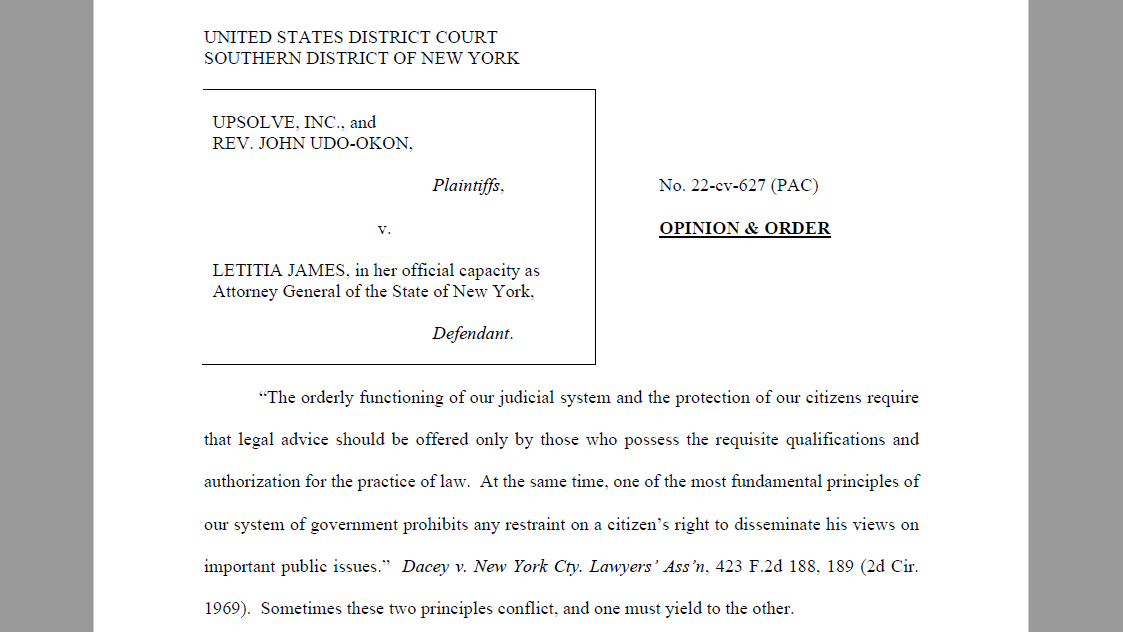Non-lawyers will be allowed to provide legal advice to low-income New Yorkers who face debt collection actions, under a preliminary injunction ordered yesterday by a federal judge in New York.
In a case brought by Upsolve, a company that uses technology to help low-income consumers in bankruptcy and debt matters, seeking to block New York’s attorney general from enforcing unauthorized practice of law rules against non-lawyers who help debtors fill out forms, the judge concluded that the First Amendment protects the non-lawyers’ legal advice.
In a 33-page opinion, U.S. District Judge Paul A. Crotty wrote:
“The UPL rules cannot be applied to Plaintiffs’ program because the First Amendment protects their legal advice as speech, and the UPL rules are not narrowly tailored to satisfy strict scrutiny in this context. Further, the balance of equities favors an injunction because Plaintiffs’ program would help alleviate an avalanche of unanswered debt collection cases, while mitigating the risk of consumer or ethical harm. And enjoining enforcement against Plaintiffs alone, whose activities are carefully limited to out-of-court advice, will not threaten the overall regulatory exclusivity of the legal profession.”
At issue in the case is a program developed by Upsolve, called Justice Advocates, to train non-lawyers to assist low-income New Yorkers in debt collection actions. The assistance would consist of helping individuals fill out checkboxes on a one-page form provided by the state, for the purpose of helping those individuals avoid default.
The problem with that program — which Upsolve had not yet implemented — was that the non-lawyers’ legal advice would put them at risk of being sued by New York’s attorney general for the unauthorized practice of law (UPL). To prevent that, Upsolve filed suit for an injunction blocking the AG from suing for UPL.
In issuing the preliminary injunction, Judge Crotty held that Upsolve is likely to succeed on the merits of its claim that New York’s UPL rules infringe on their right to give legal advice under the First Amendment.
He emphasized that his decision was not intended to apply broadly to the validity of New York’s UPL laws. “Instead,” he wrote, “the issue here is a narrow one: whether the First Amendment protects the precise legal advice that Plaintiffs seek to provide, in the precise setting in which they intend to provide it. The Court holds that it does.”
The opinion concludes:
“Lawyers, as members of a ‘noble profession,’ play a unique role in our society. … But Plaintiffs have designed a unique program of their own. They have demonstrated a narrow exception, under the First Amendment, to New York’s UPL rules, and they will be allowed to implement that program without the threat of prosecution.”
Click here to read the full opinion: Upsolve-v-James-5-24-22.
 Robert Ambrogi Blog
Robert Ambrogi Blog